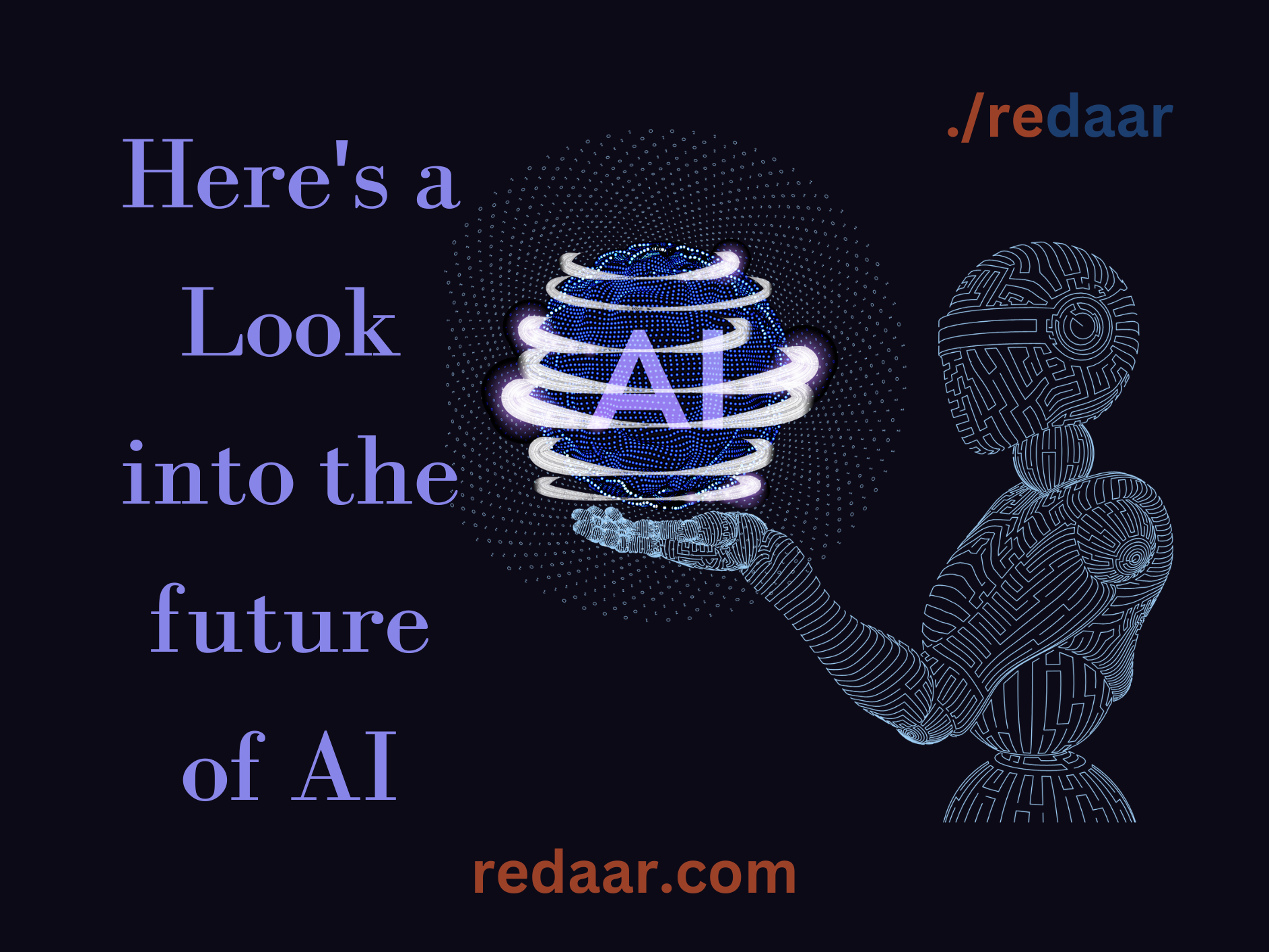Since its conception, artificial intelligence (AI) has advanced significantly. Artificial intelligence (AI) has advanced dramatically, transforming many sectors and facets of our lives from being a mere concept in science fiction to being a real-world reality.
The potential of AI is infinite as we stand on the threshold of the future and provides a tantalizing glimpse into a world of incredible creativity and advancement. There’s also fear lurking around the advancement of AI, and fear of job losses.
In this article, we explore the fascinating advancements and opportunities that artificial intelligence will bring about in the future.
AI in Everyday Life
Artificial intelligence (AI) is already pervasive in our daily lives thanks to digital assistants like Siri and Alexa, tailored content recommendations, and smart home gadgets. In the future, AI will continue to permeate every aspect of our lives, making tasks simpler, making life more convenient, and allowing for more individualized experiences.
AI-powered healthcare applications will enable earlier disease detection and more precise treatments, while self-driving cars will go widespread, providing safer and more effective transportation. All in all, AI is seen as a tool that will make our everyday life easier and smoother, however, will it not make us lazy? This question shall only be answered once the full potential of AI is unleashed in the future.
AI and Automation
AI-driven automation will change the nature of work and reshape the labor market. Delegating routine and repetitive activities to machines will increase productivity and efficiency across a variety of industries.
Although some people worry that AI will eliminate jobs, it will also open up new positions and career paths, especially in fields like AI development, data analysis, and human-machine collaboration. People will also be needed to monitor AI applications or to use AI.
Ethics and Governance
The development of AI raises ethical questions that require careful thought. Data security, algorithmic bias, and privacy concerns are crucial as AI develops its autonomy and decision-making abilities. In order to ensure AI is utilized responsibly and ethically, policymakers will be crucial in creating regulations that strike a balance between technical growth and societal well-being.
Policymakers will be required to regularly keep a check on developments in AI and make sure that they are complying with all the set rules and regulations.
AI in Healthcare
Healthcare AI’s potential is tremendously bright. Huge volumes of medical data may be analyzed by AI algorithms, enabling faster and more accurate disease diagnosis. Additionally, wearable technology powered by AI will continuously monitor patient health, delivering real-time alerts and proactive actions.
This change has the power to transform patient care, lower healthcare costs, and lengthen life expectancy.
AI and Climate Change
Healthcare AI’s potential is tremendously bright. Huge volumes of medical data may be analyzed by AI algorithms, enabling faster and more accurate disease diagnosis. Additionally, wearable technology powered by AI will continuously monitor patient health, delivering real-time alerts and proactive actions.
This change has the power to transform patient care, lower healthcare costs, and lengthen life expectancy.
AI and Creativity
Despite worries that AI will inhibit human innovation, it can actually encourage and inspire it. In the creative sector, AI-generated works of art, music, and literature have already established themselves.
Future artists and innovators may work with AI systems to explore uncharted territories of artistic expression, fusing their creativity with ideas generated by machines. 88% of marketers believe their organization must increase its use of automation and AI to meet customer expectations and stay competitive. Hence, we can figure out that AI is going to play a vital role in the field of creativity or marketing.
AI and Education
The use of AI in education has the potential to significantly improve the educational process. The learning process can be optimized by using adaptive learning platforms to tailor educational content to the needs of specific students. Systems that use AI to enable tutoring can give students immediate feedback and individualized guidance, enhancing learning outcomes. AI can also help teachers with administrative duties, freeing them up to concentrate more on leading and mentoring students.
Quantum AI
Another ground-breaking breakthrough is quantum computing, which will soon be available. AI with quantum computing could release previously unheard-of processing power, enabling the solution of challenging problems that are currently beyond the capabilities of traditional computers. Among many other uses, quantum AI has the potential to alter financial modeling, supply chain optimization, and drug development.
Artificial intelligence’s upcoming developments represent an exciting adventure into the uncharted. The potential for AI to transform industry, society, and the human experience increases with each passing day. Harnessing this transformative technology’s potential for the benefit of humanity will need a commitment to ethics and responsible governance.
As we move forward in this new era, the secret is to strike the appropriate balance between innovation and accountability, making sure that artificial intelligence (AI) continues to be a force for good and enables us to build a better and more prosperous future for everybody.
Keep reading us regularly for breakthrough posts.

